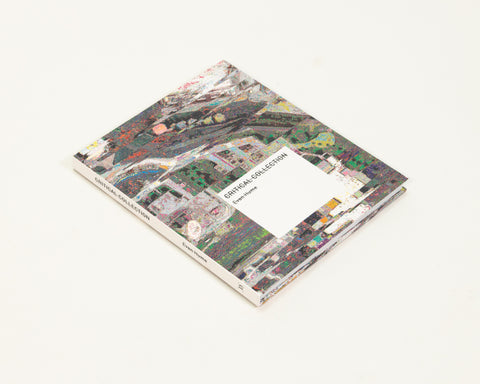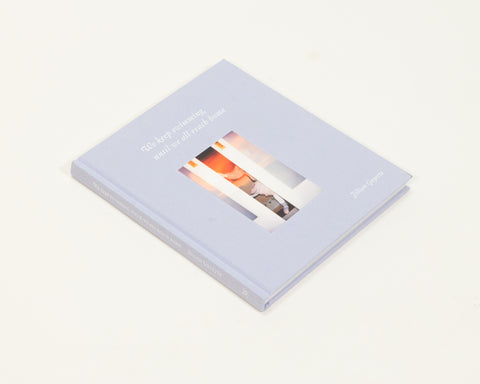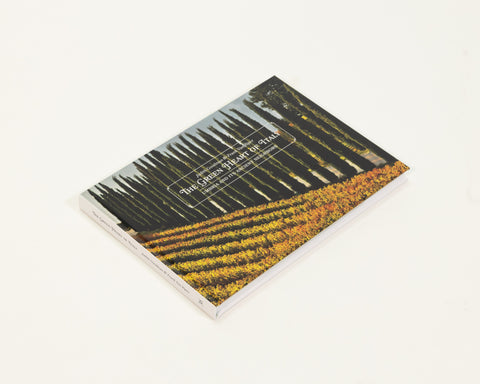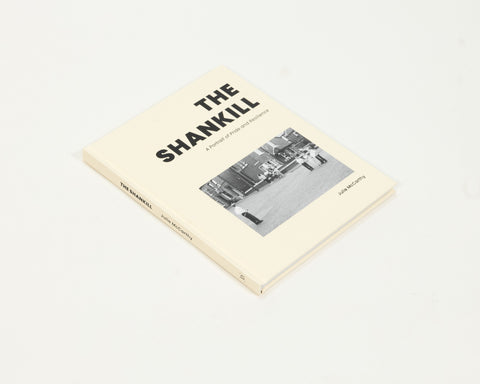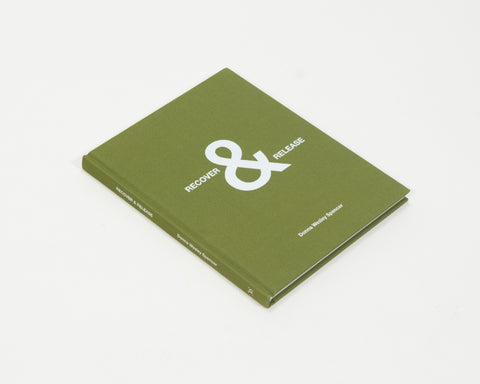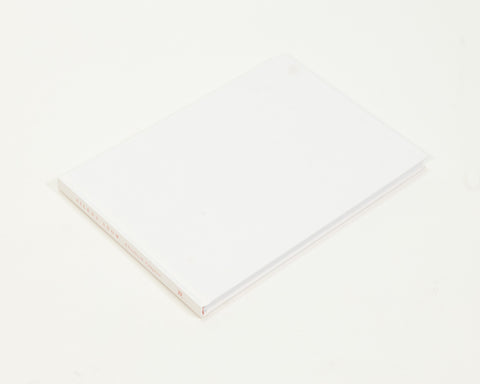Photograph by Fazal Sheikh
Distillation
“Forgetting would be an insult to one’s humanity. To heal we must remember. We need to know what the scars are for.” --Tom Cauuray, July, 2007, Sierra Leone
Cauuray said that to me in reference to the internal, as well as political and social work of figuring out how to continue to live beyond that country’s brutal civil war. We were sitting outside in Freetown, under an awning, it was raining hard, we were sipping tea.
At the time I was in Sierra Leone, regions throughout the country still maneuvered daily life without electricity, or running water, in a lot of cases without roofs or all four walls on living structures, the remnants of war still visible in these homes, still and forever visible on the scarred and maimed bodies. But each morning, a cooking fire is started, a pot is pulled out, fruit is cut. Each morning, yesterday’s clothes are plunged in water, then hung to dry on lines, and if you drive down some roads, rows and rows of fabric billow and snap so that an entire eyeful of landscape is heralding a sky of just another ordinary day, the kind removed from--or existing in spite of--guns, machetes, lost limbs, and a lot, a lot of scars.
And this commitment to moving forward, even if that movement means simply getting up and getting through another day, is humbling, capable of teaching, and worth learning about.
Widely recognized (Fulbright, National Endowment for the Arts, MacArthur, to name just a few) for his resonance as a photographer, Fazal Sheikh’s images often address the shadows of the world--warfare, trauma, exile, displacement, inequality, and utter loss of basic human rights. But at the same time, his photographs are fiercely beautiful. At its extremes, the counterbalance of death is life, and Sheikh addresses both with an honesty and forthrightness that defies the mere aesthetic.
Photographing in places like Kenya, Somalia, India, Afghanistan, and Pakistan, Sheikh’s many book and exhibition projects honor stories and the people who live them. Visual archives of memory and surviving, of grace and gratitude, his photographs continually give forth metaphor and layers of implication to this world we think we know so well. The prayer of history is that context unfolds meaning, and Sheikh talks with me about a photograph functioning as an invitation, piquing the viewer’s interest and deepening the reference points, providing just enough insight into a particular subject, suggestive in a way that is not reductive, but additive in complexity.
In her seminal anthology, Against Forgetting, poet Carolyn Forché compiled poems of witness spanning the 20th century. She writes in the book’s foreword, “Regardless of ‘subject matter,’ these poems bear the trace of extremity within them, and they are, as such, evidence of what occurred. They are also poems which are as much ‘about’ language as are poems that have no subject other than language itself.” And in this respect, Sheikh’s work similarly coexists as images of witness, as well as statements on the medium itself, reflecting how, for example, a portrait holds the capacity to offer empowerment to the sitter, as well as to reveal so much more--whether political, social, cultural, or circumstantial--beyond the specifics of the face photographed. While expressing story and metaphor and a glimpse into the life or self of an individual, a complex portrait reveals more and more upon subsequent viewings, and it is the kind of art that partners with time to peel back the layers, even re-contextualize memory. The creative process itself, Sheikh feels, also holds the potential to manifest in work capable of operating as both art, as well as documentation.
Accessibility to his images and stories is a commitment marked by Sheikh’s International Human Rights Series, a project begun in 2001 that publishes and makes certain bodies of work available in their entirety online free of charge. This democratic accessibility strives to provide a progressive distribution in addition to and separate from the traditional publishing and gallery venues typically associated with art. In this way, work concerned with complex human rights issues can potentially engage with an international audience (and perhaps especially with the people about whom he is photographing and writing), furthering the conversation and thought.
Why is work like Sheikh's necessary? Because loss can be caught and held for awhile on a rectangle or square of film, or in a digital file, held just long enough to look it in the eye and come to some kind of terms with it, even if that only lasts a minute or two. Because reconciliation happens in fits and bursts and then is stitched together by time and light.
Because last week, a few miles from my house, there was a shooting in a shopping mall full of holiday shoppers. Because a few miles from lots of people’s houses on every single continent of the world people hurt or oppress one another in one way or another. They always have, and I imagine they always will. But there is more than this. And Fazal Sheikh captures the ‘more than this.’
Because we need to continue looking in faces--in real time, in person, on film, on paper, in however we can--to remember. To remember that we’re all getting up each new day and starting all over again, continuing forward, whether we realize it, or even want to.
My daughter and son, who know firsthand too much already at their young ages about profound loss, are cutting out paper snowflakes to send to Connecticut. When the children who survived the Sandy Hook shooting return to school in January, their teachers want the school to be a magical winter wonderland when they walk through the doors. I’m watching my children take a white rectangle of the most ordinary, cheap paper on the planet, fold it, hold it, cut shapes in it, peer intensely at it while doing so, then unfold it into something beautiful, shake it out, throw it up in the air, bring the sky to earth. That is a kind of falling that yes, holds the velocity of elegy--but of something more, too.
And it is in the chronicling of it all--the awful, the beautiful, the loss, the belief, the exceptional, the ordinary--that Sheikh affirms the narrative of a time and a place through his images, as well as and perhaps most importantly, of the individual men, women, and children he photographs. The specifics of one bloom to be of us all.
Next week the earth turns to unveil a new year. The synthesis of every single act of every single one of us is tilled over. Sheikh does not believe his images offer answers, that implies a right most of us (all of us?) don’t have. He does, though, try to propel conversation or deeper thought about specific and often overlooked issues. He talks to me about the gift of time to consider and explore, and that perhaps is the essence of what a new year implies--we each have a little more time, a year ahead to get closer to becoming, forgiving, understanding.
For more information on Fazal’s projects and to view some of his photographs, visit: http://www.fazalsheikh.org/
